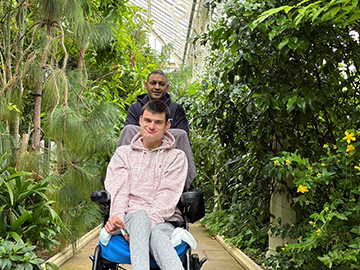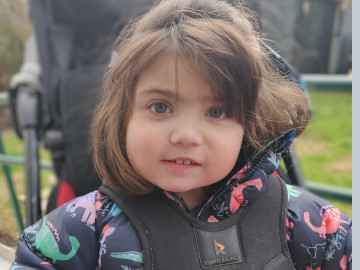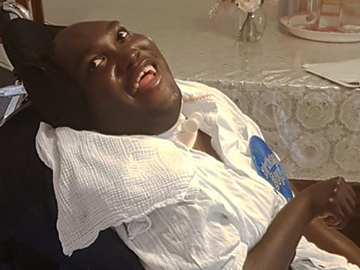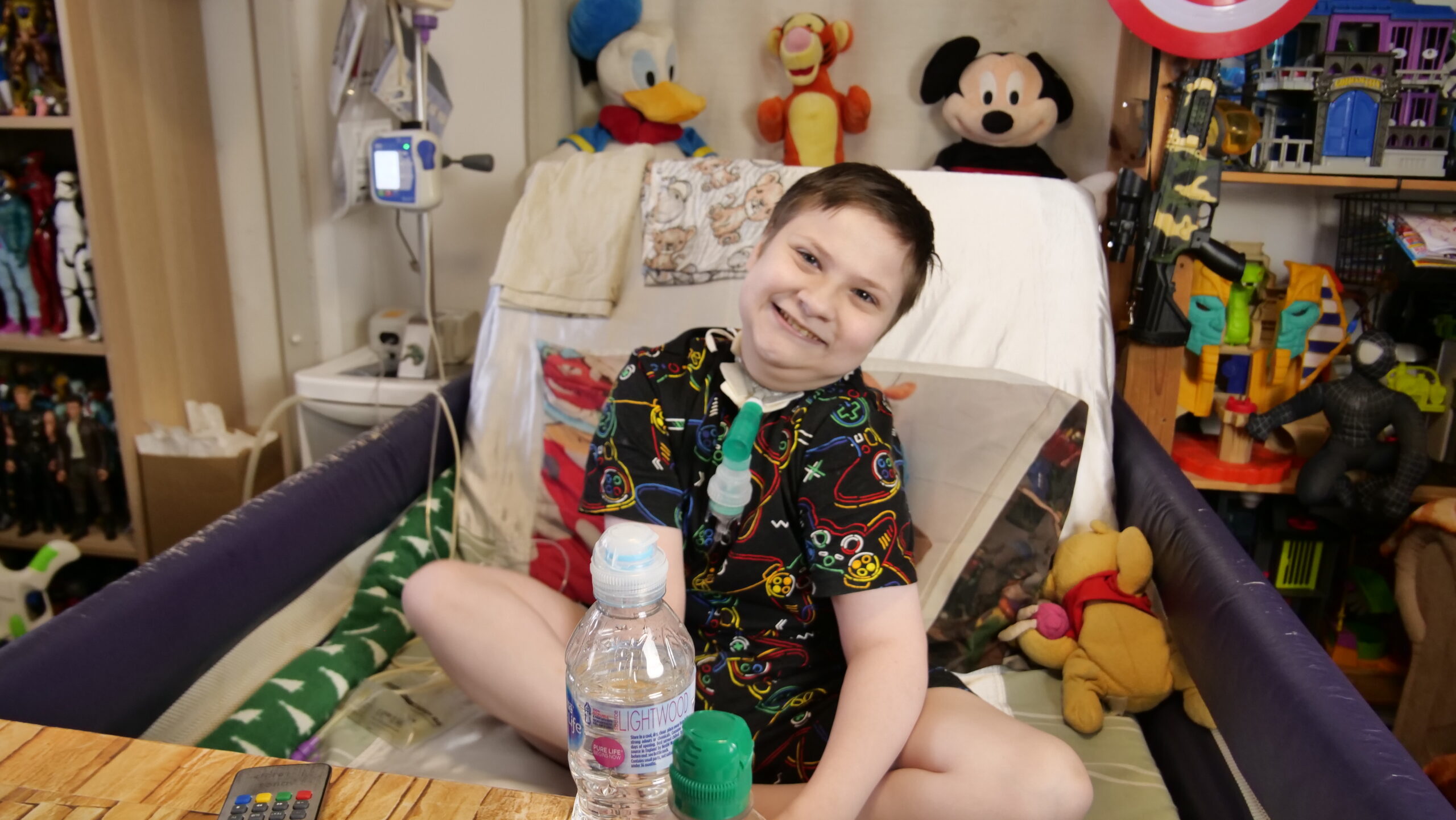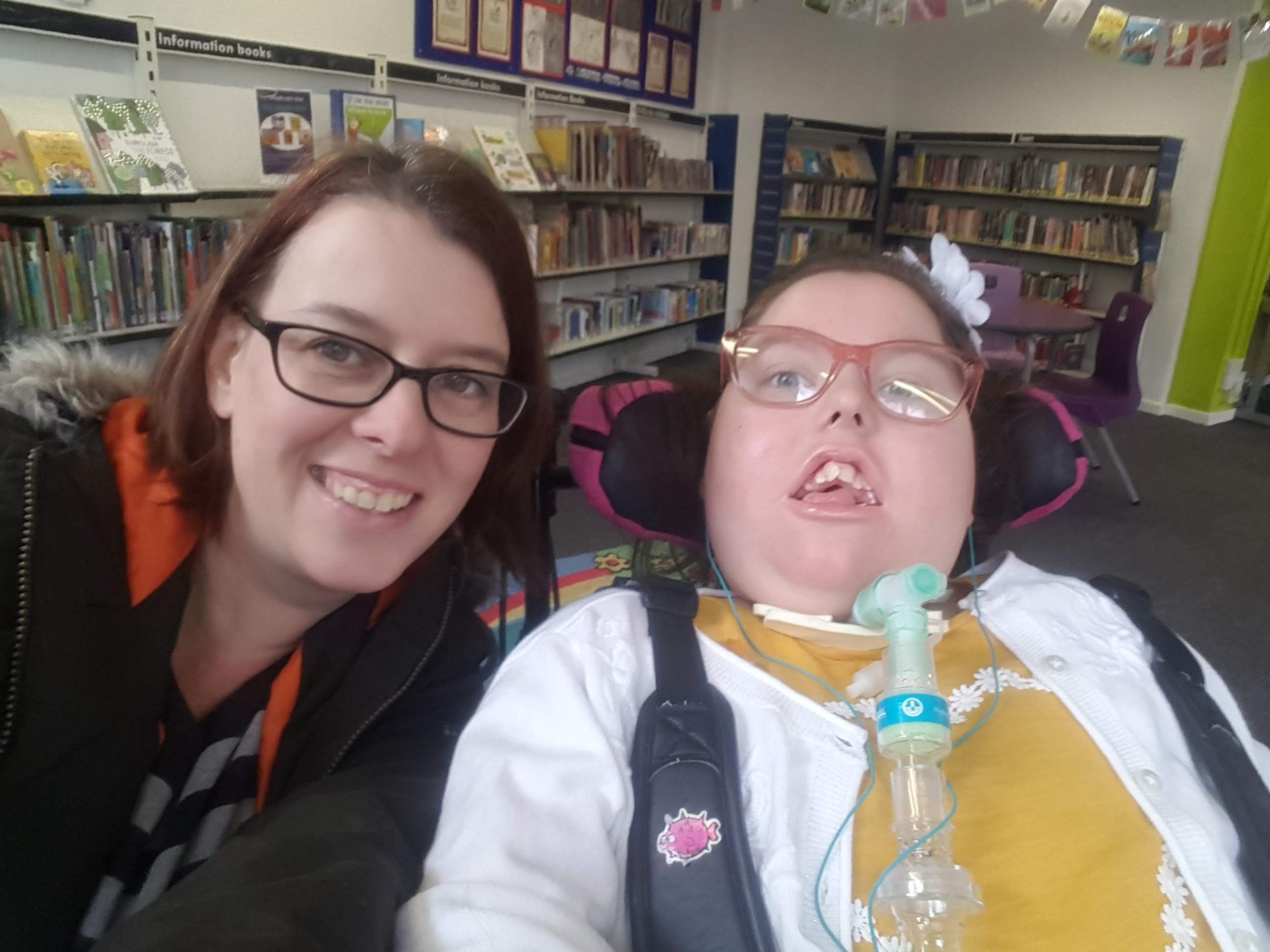Quality care for Jonathan and his family
Jonathan is 25 and has a variety of complex care needs including quadriplegic cerebral palsy, scoliosis and epilepsy. To enable him to breathe, Jonathan has a tracheostomy and is provided with overnight oxygen. He is also PEG fed with a gastrostomy tube to support his nutrition and feeding.
Because of the complexity of his needs, Jonathan is unable to communicate verbally, and can’t do anything for himself. Small things like lifting his arm is impossible for him and he depends entirely on one to one care.
Our Children’s Complex Care (CCC) team have provided great quality care for Johnathan since 2014. We currently provide two to one daytime support every weekday. But it hasn’t always been this way, as Jonathan’s dad James explains…
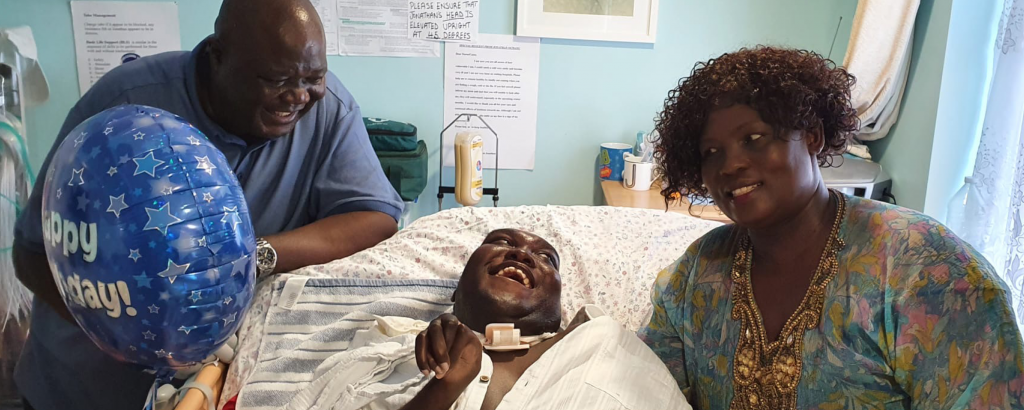
Care without support: A Dad’s perspective
“When Jonathan was born, he developed all kinds of problems which was initially quite scary. He wasn’t breathing, he couldn’t feed properly, and he would cry most of the time. We were constantly in and out of hospital and it was hard for us as a family.
After he got his diagnosis, he started stabilising and was allowed home. I was given some basic training so I could change his tracheostomy, but even though we had support from an agency care provider, it was only for one or two nights a week.
The rest of the time, me and my wife managed his care by ourselves. It was very, very difficult, especially when you have other children to look after too. We needed more help, particularly as Jonathan grew and got heavier, because he became even harder to manage alone.
When he turned 18, the Clinical Commissioning Group (CCG) increased his support to three nights. We still had no day care at all. But when he turned 20, they saw he needed more support and the CCG suggested CCC to us.
At the time, Jonathan was going to a day centre. The idea was for you to provide support during the day alongside the care agency that support overnight. This means Jonathan has carers in place almost 24/7, which is much better than before and means we get a break.”
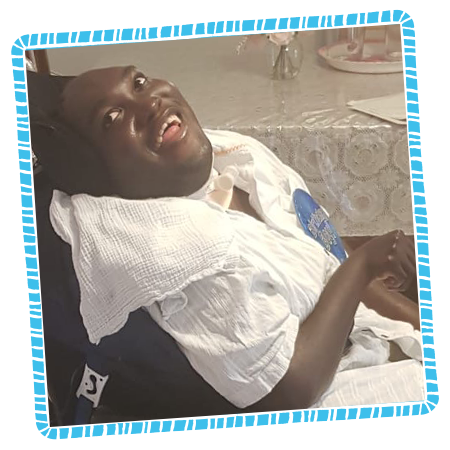
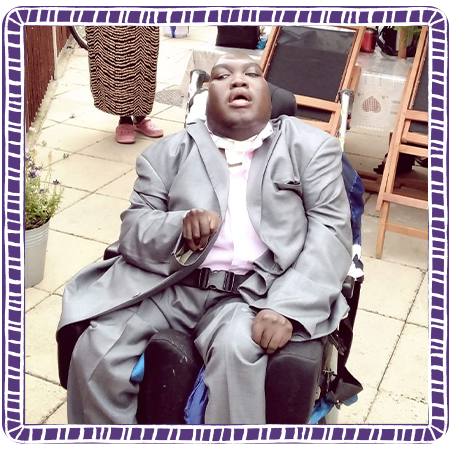
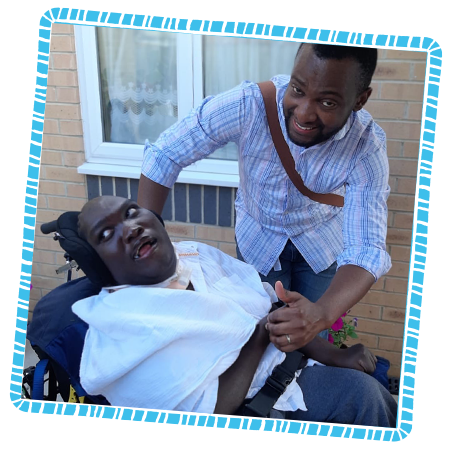
High quality care that keeps Jonathan well
Jonathan’s needs mean he is prone to aspiration and can deteriorate very quickly from a simple chest infection. In the past, he was admitted to hospital yearly with chest infections or pneumonia, especially during the winter months.
We’ve worked hard with Jonathan’s family, his GP and our healthcare assistants to reduce his hospital admissions through high quality clinical care. This was especially true during COVID-19 in reducing risks when providing care throughout this challenging period.
“Jonathan is susceptible to being very unwell, very quickly. But for over a year and a half now, he hasn’t had any hospital admissions whatsoever. Throughout COVID he’s remained safe and well. I think that’s testament to our consistency and the quality of care Jonathan receives,” said Christiana Badmus, Jonathan’s Clinical Nurse Manager at CCC.
Pro-active risk management
Jonathan can also suffer with skin irritations. His tracheostomy is held in place with tapes so the skin underneath isn’t exposed. This can sometimes cause skin breakdowns if not noticed and treated in the early stages.
As part of our high-quality care delivery for Jonathan, we require healthcare assistants (HCAs) to complete body maps and regularly report any skin issues. This helps us keep him clinically stable, working with his GP to manage any potential risks.
Gemma Morris, Jonathan’s Clinical Nurse Educator at CCC said, “The care we provide ensures Jonathan’s safety. Its evidence based and HCAs have the right training to support his needs. But it goes further than that with the clinical governance process we implement. We complete regular staff supervisions, address any issues with audits and provide comprehensive competency assessments.”

A multi-disciplinary approach
Jonathan’s needs are quite complex and a variety of teams are involved in supporting his care and health needs. It’s important we work closely with these support systems to achieve the best possible outcomes when delivering quality care for Jonathan.
As part of this, we have regular contact with his local authority, his commissioner, his paediatrician and consultants, his GP and his other care agency that provide night support. This ensures every element of Jonathan’s care plan is always up to date and meets his needs.
Recently, one of Jonathan’s machines needed a service. But during the child to adult care transition, suppliers had changed, and it was unclear on who would be responsible for his equipment in the home.
“It was difficult at the time. The transition from child to adult care service was handled before our time and there were gaps that hadn’t been filled. We took control of the situation and facilitated communication between all community teams involved to resolve this issue.“
Christiana Badmus,
Clinical Nurse Manager
Person Centred care
Part of our commitment to quality care is incorporating what’s important to people in their care plan and during care delivery. This is called a person-centred care approach.
We’ve developed a daily routine with Jonathan which is up on his wall. It lists all the things he likes and how to best support him. For example, he enjoys football, walks and music so HCAs will often have the radio on when supporting him or ensure he’s watching the football.
These little things make a big difference to Jonathan and support us to communicate and build a relationship with him.
Advocating for Jonathan’s needs
Pre-COVID, Jonathan had one HCA supporting him for the whole day on a one to one basis. We felt this needed to increase because of Jonathan’s limited mobility and skin delicacy. It was especially necessary for safety when moving and handling.
We worked in partnership with the Occupational Therapist (OT) and the CCG, supporting at various meetings and providing risk assessments. After a short period, Jonathan was granted two to one support.
Jonathan’s parents were initially quite reluctant about this change. They didn’t like the idea of more people in the home and felt nervous about how this would impact the whole family.
We started with one shift a week, building this up gradually until the family were happy. The additional support helps us deliver quality care that keeps Jonathan safe, which is the most important part of our role.
Due to the progress he has made with our support, Jonathan’s parents have requested we take over from another provider to deliver night care too! We are working with the family and the CCG to do this and will again, implement this slowly to ensure a smooth transition.
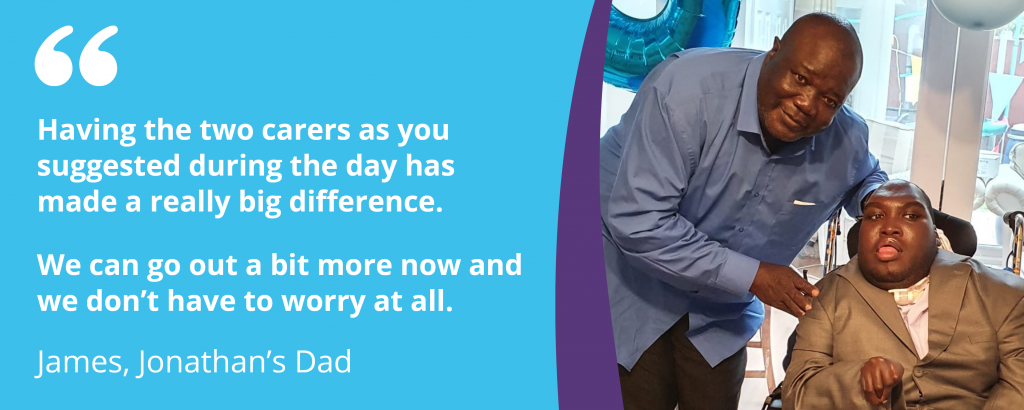
Getting back into the community
We usually support Jonathan to attend a community day centre. This is something Jonathan really enjoys because it provides him with sensory activities and creativity to support his development.
This isn’t currently possible because of COVID-19 restrictions. We are working with Jonathan and his family to get him back into the day centre, so he can continue to be a part of his local community and lead a happy, fulfilling life.
Learn more about complex care for 0-25 year olds!
We are specialists in providing complex care and support for children and young people. Visit our webpage to learn more about our Children’s Complex Care team. Or find out how we could help your loved one or client through by calling 0207 407 7704 or emailing CCCreferrals@voyagecare.com.

 Children's Complex Care
Children's Complex Care  More success stories
More success stories 